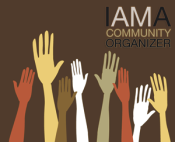Friday, 26 October 2007
How Does Extreme Color Arousal Relate to Criminal Offenses?
A lot of mental illnesses cause people to do "evil" things, for example alcoholism causes people to drive drunk and kill people, while drug addiction causes people to steal from their family members to buy drugs, even to the point of stealing and selling their parents wedding rings.
However, there is only hope for alcoholics and drug addicts when we recognize that they have an illness and start looking at ways to treat it.
Ironically, for so long as we insist that they are simply evil, we guarantee that their "evil" behavior will continue. Only by recognizing that they have a mental disorder can we have any hope that we can treat their condition so that their "evil" behavior will be reduced.
Anonymous said:
I'm sorry, but I cannot see this behaviour as an illness. It's volitional; while an illness is not. Just as people choose to drink and drive, these folks choose to shoot, maim, and kill black and brown people without provocation or necessity by a choice of their will. People choose to do evil; they don't choose to be sick. Whatever happened to personal responsibility. I feel that by labeling this behaviour as an illness, it almost absolves the doer of responsibility.
Francis L. Holland Blog said:
People are personally responsible for what they do, but we often are unable to help people to shoulder their personal responsibility unless we have a better understanding of WHY they engage in the behaviors.
In this case, there are clearly thoughts, emotions and behaviors that are irrational, and irrational thoughts, emotions and behaviors are often a sign of mental illness. However, our society doesn't absolve perpetrators legally for their behavior unless they are incapable of understanding that their behavior is wrong, which means that in less than 1% of cases are defendants able to convince a jury that they meet this standard.
In fact, white juries often refuse to punish whites for hate crimes, so we really have little to lose by trying to understand and treat the ideation, emotion and behavior that leads to hate crimes.
At what point in their lives do people become capable of committing a hate crime and why? Is there anything that can be done in the way of prevention so that they don't get to that point?
As long as you look at color-aroused disorder ONLY as a volitional "evil" to be punished rather than as a cognitive behavioral disorder that results partly from environmental learning and forces, it will be impossible to develop prevention, screening and treatment strategies that prevent color-aroused disorders from developing in the first place.
Anonymous said:
Just who will be doing the development, preventing, screening and treating of color-aroused disorders? What are the criteria for the diagnosis? Is treatment mandatory? Just as the white juries refuse to punish rogue cops, so will white doctors and physicians pronounce all suspected color aroused individuals well.
Francis L. Holland said:
Black psychiatrists are working to convince the American Psychiatric Association to take on this problem, to acknowledge that only someone who has emotional problems would e.g. hate Black co-workers so much that he would shoot them and then take his own life.
When people are "a danger to themselves and others," they can be compelled to receive psychiatric care, as when a person tells a psychiatrist, "I have a gun and today I am going to kill all of my Black co-workers and then I am going to kill myself."
The fact that the co-workers are Black should not prevent them psychiatrist from realizing that the white worker presents a danger to himself and others.
Likewise, if the same worker expresses those feelings to the company psychologist, it would be natural and legally required that the company require the worker to get psychiatric help as a condition of maintaining his employment.
No one has a right to create a hostile environment for fellow employees. Where workers do so because they suffer from a color-aroused disorder, a company could recommend treatment for that disorder as an alternative to firing the worker or letting the illegal behavior continue, making the corporation legally liable for the color-aroused employee's behavior.
Likewise, when college students show that color-aroused ideation, emotion and behavior is making them a danger to self and others, it could be recommended that they seek psychiatric services. If their behavior is sufficiently serious and rule breaking behavior pronounced, they might be required to seek these services as a condition of continued enrollment.
However, there is only hope for alcoholics and drug addicts when we recognize that they have an illness and start looking at ways to treat it.
Ironically, for so long as we insist that they are simply evil, we guarantee that their "evil" behavior will continue. Only by recognizing that they have a mental disorder can we have any hope that we can treat their condition so that their "evil" behavior will be reduced.
Anonymous said:
I'm sorry, but I cannot see this behaviour as an illness. It's volitional; while an illness is not. Just as people choose to drink and drive, these folks choose to shoot, maim, and kill black and brown people without provocation or necessity by a choice of their will. People choose to do evil; they don't choose to be sick. Whatever happened to personal responsibility. I feel that by labeling this behaviour as an illness, it almost absolves the doer of responsibility.
Francis L. Holland Blog said:
People are personally responsible for what they do, but we often are unable to help people to shoulder their personal responsibility unless we have a better understanding of WHY they engage in the behaviors.
In this case, there are clearly thoughts, emotions and behaviors that are irrational, and irrational thoughts, emotions and behaviors are often a sign of mental illness. However, our society doesn't absolve perpetrators legally for their behavior unless they are incapable of understanding that their behavior is wrong, which means that in less than 1% of cases are defendants able to convince a jury that they meet this standard.
In fact, white juries often refuse to punish whites for hate crimes, so we really have little to lose by trying to understand and treat the ideation, emotion and behavior that leads to hate crimes.
At what point in their lives do people become capable of committing a hate crime and why? Is there anything that can be done in the way of prevention so that they don't get to that point?
As long as you look at color-aroused disorder ONLY as a volitional "evil" to be punished rather than as a cognitive behavioral disorder that results partly from environmental learning and forces, it will be impossible to develop prevention, screening and treatment strategies that prevent color-aroused disorders from developing in the first place.
Anonymous said:
Just who will be doing the development, preventing, screening and treating of color-aroused disorders? What are the criteria for the diagnosis? Is treatment mandatory? Just as the white juries refuse to punish rogue cops, so will white doctors and physicians pronounce all suspected color aroused individuals well.
Francis L. Holland said:
Black psychiatrists are working to convince the American Psychiatric Association to take on this problem, to acknowledge that only someone who has emotional problems would e.g. hate Black co-workers so much that he would shoot them and then take his own life.
When people are "a danger to themselves and others," they can be compelled to receive psychiatric care, as when a person tells a psychiatrist, "I have a gun and today I am going to kill all of my Black co-workers and then I am going to kill myself."
The fact that the co-workers are Black should not prevent them psychiatrist from realizing that the white worker presents a danger to himself and others.
Likewise, if the same worker expresses those feelings to the company psychologist, it would be natural and legally required that the company require the worker to get psychiatric help as a condition of maintaining his employment.
No one has a right to create a hostile environment for fellow employees. Where workers do so because they suffer from a color-aroused disorder, a company could recommend treatment for that disorder as an alternative to firing the worker or letting the illegal behavior continue, making the corporation legally liable for the color-aroused employee's behavior.
Likewise, when college students show that color-aroused ideation, emotion and behavior is making them a danger to self and others, it could be recommended that they seek psychiatric services. If their behavior is sufficiently serious and rule breaking behavior pronounced, they might be required to seek these services as a condition of continued enrollment.
Subscribe to:
Post Comments (Atom)



No comments:
Post a Comment